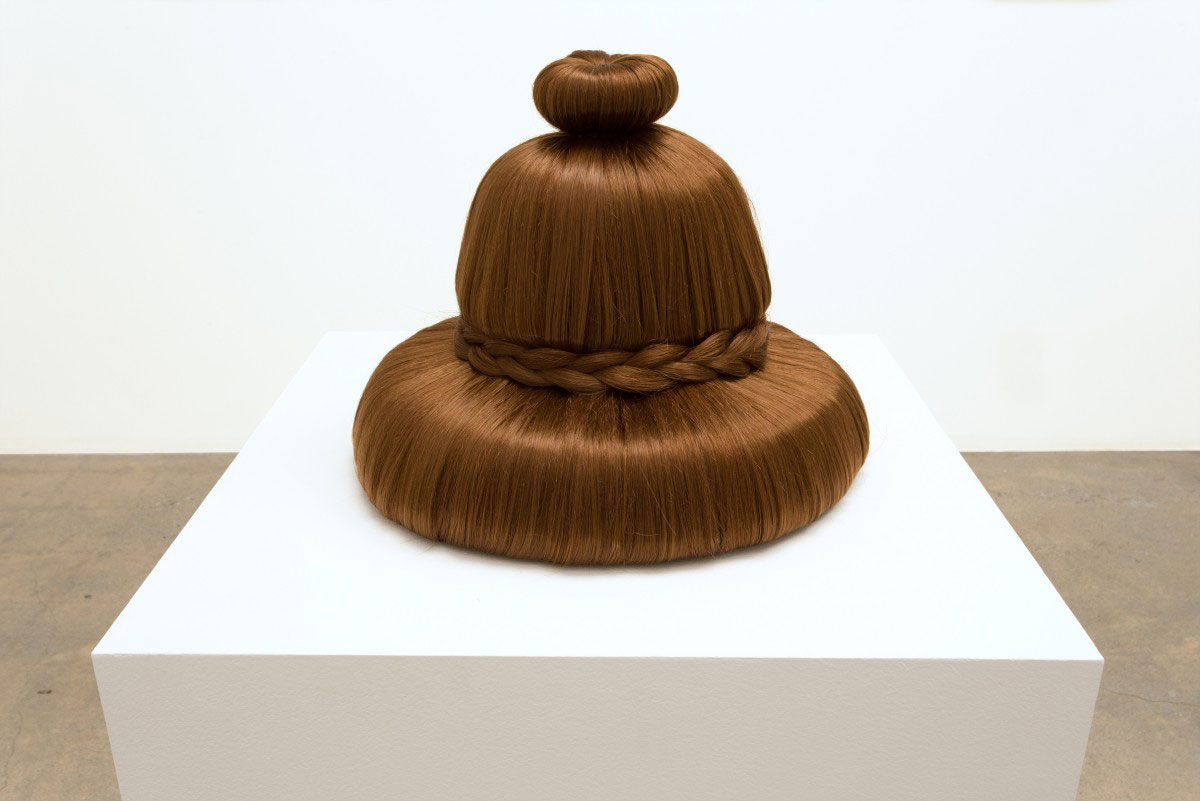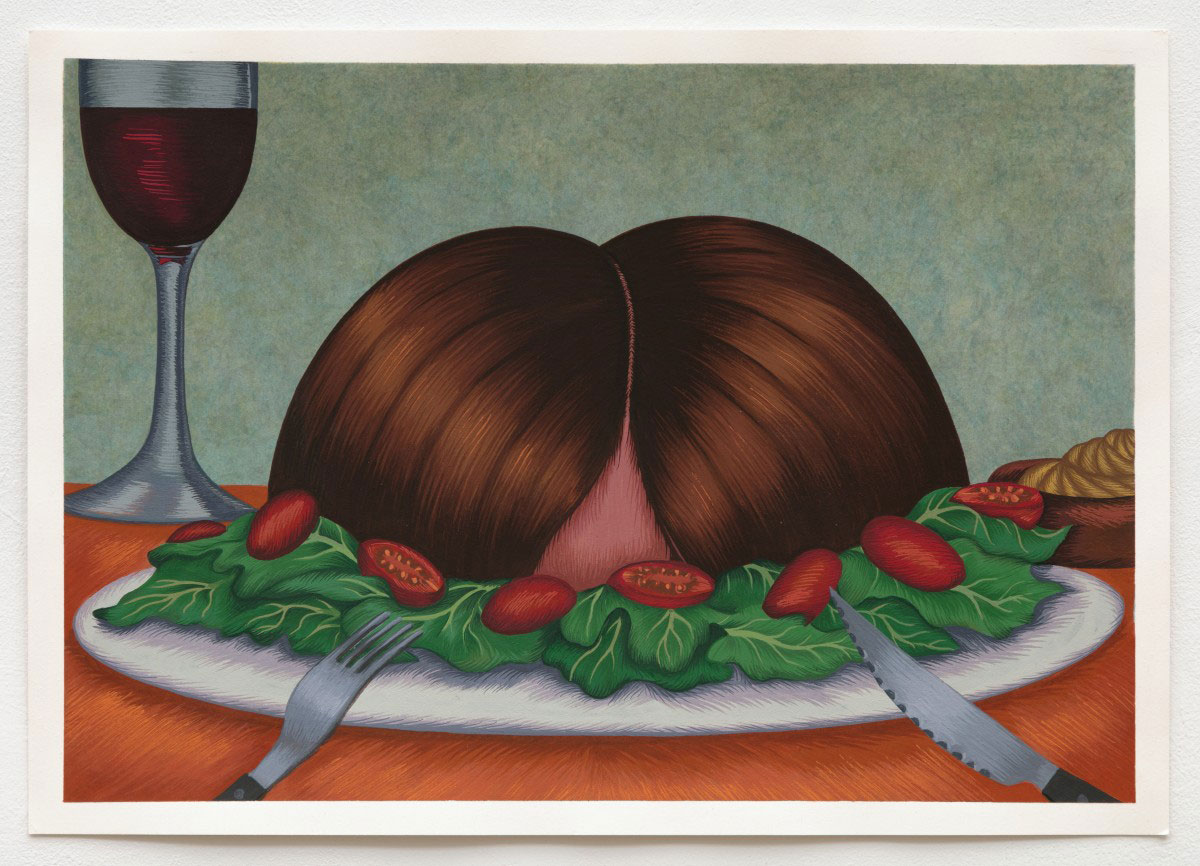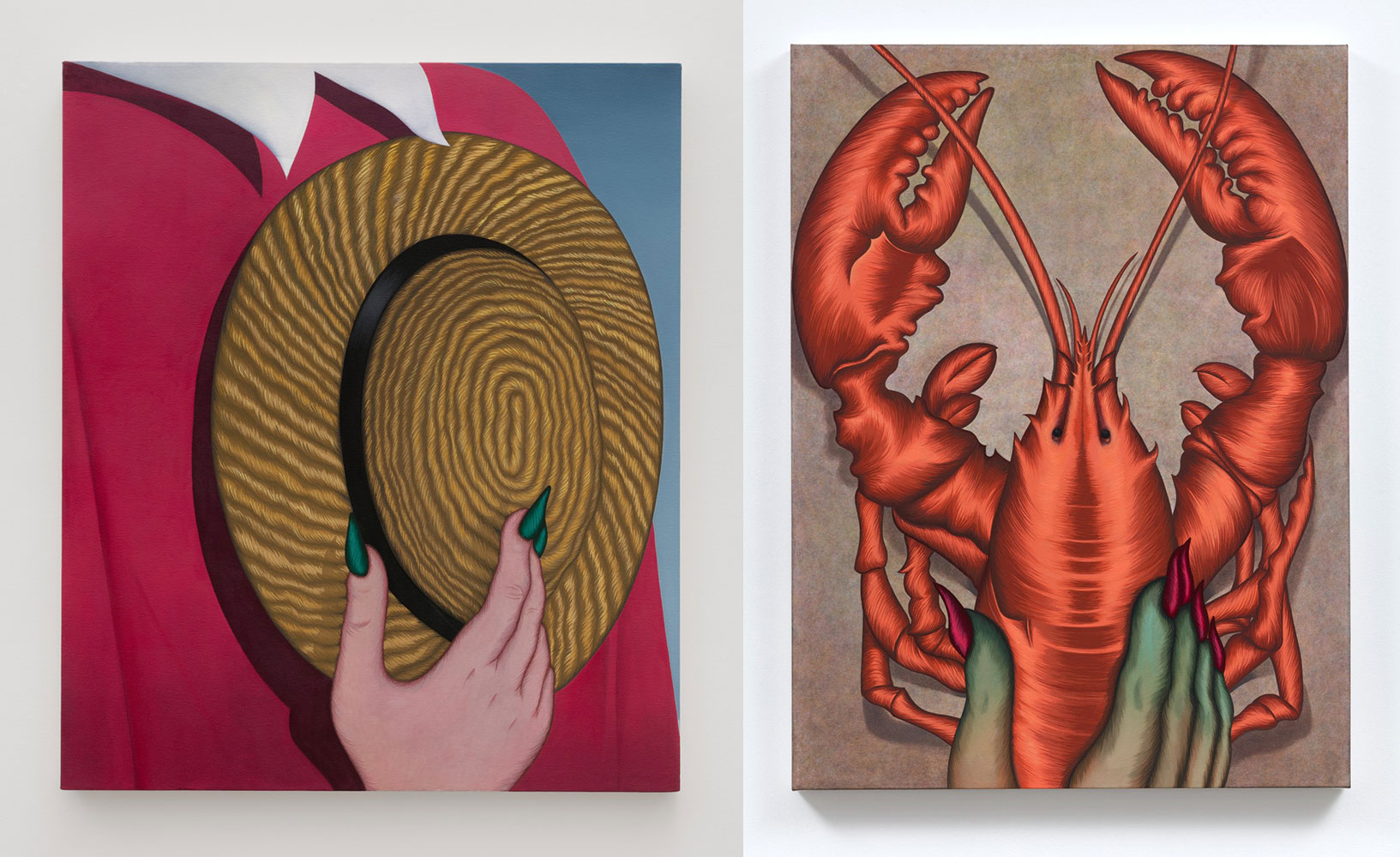ART CITIES:London-Julie Curtiss
 Julie Curtiss focuses on the relationship between nature and culture in her figurative painting, sculpture and gouache on paper, exposing and reworking female archetypes through a surrealist sense of the uncanny. “In my images, I enjoy the complementarity of humour and darkness, the uncanny and the mundane, grotesque shapes and vivid colors”, she has commented.
Julie Curtiss focuses on the relationship between nature and culture in her figurative painting, sculpture and gouache on paper, exposing and reworking female archetypes through a surrealist sense of the uncanny. “In my images, I enjoy the complementarity of humour and darkness, the uncanny and the mundane, grotesque shapes and vivid colors”, she has commented.
By Efi MIchalarou
Photo: White Cube Gallery Archive
“Monads and Dyads”, Julie Curtiss’ first exhibition in London, features new paintings, works on paper and sculptures. Curtiss’ paintings are carefully composed, framed and cropped with a cinematographic instinct for arresting image and a keen eye for the absurdities of everyday life. With their saturated color, crisp detail, and scenarios which are at once banal and bizarre, they have a dreamlike quality. Through the use of unexpected juxtapositions of subject with object, of the seen and the implied, and exaggerated cartoon-like forms, her paintings are infused with a direct and deadpan humor, revealing the uncanny within the familiar and the grotesque and surreal undertones of human characteristics and behavior. Known for her surrealist re-workings of archetypes of femininity, in this new body of work the artist expands from the intimate and subjective to broader themes of the individual and society. The exhibition’s title, “Monads and Dyads”, identifies an organizing principle connecting these vignettes. Terms found in mathematics, philosophy, sociology and mysticism, the monad (one) denotes the singular or the individual, self-contained and indivisible, and is represented by the circle: it is associated with the divine and can be found in the mandala and in the halo. The dyad (two) is a doubling, potentially a generative coupling, but also implying binary systems and dynamics of opposition. These concepts find expression both thematically and formally in Curtiss’ paintings, while, according to the artist’s theory of number, the exhibition itself contributes a third strand, allowing them to be braided into one. Curtiss found that these concepts also resonated with her perception of contemporary society: its tendency to individualism and atomisation, even before the circumstances of the pandemic enforced physical isolation; and simultaneously, the increasing polarisation of identity and opinion into diametrically opposed encampments. Curtiss’ imagery has long fed on the dualities that fuel surrealist juxtapositions – male and female, attraction and repulsion, animate and inanimate. Twins, doubles and reflections – sometimes false – proliferate in her work. Curtiss connects dualities, complementary and in opposition, with Jungian thinking, which she encountered early in her art education and which has had a profound influence on her, particularly through the idea that image-making is connected with archetypes – the powerful universal patterns or roles arising from our shared unconscious. Carl Jung identifies four self-archetypes: the persona, or mask, that we present to the world; the shadow, our baser instincts and repressed desires, sometimes in beastly form; the anima or animus, which represents the feminine in the male psyche and vice versa; and the self, the union of conscious and unconscious, often represented by a circle. These archetypes provide a convincing alternative key to reading Curtiss’ blank faces, the twinned selves, the occasional intrusion of fang or talon and the libidinous undercurrents in her imagery. Shown alongside the paintings, a series of monochrome gouaches see Curtiss setting aside her precise sense of color for the challenge of rendering the textures of hair, feathers or whipped cream simply by the interplay of dark and light. A small group of sculptures draw on the artist’s fascination with 18th-century anatomical models as well as an encounter in Japan with the trade in fake food sampuru (‘samples’), resulting in disquieting yet comical objects that conflate food and the body in classic Surrealist fashion.
Photo: Julie Curtiss, Urchin, 2018, Resin, hat and synthetic hair, 18 × 18 × 7 in. / 45.7 × 45.7 × 17.8 cm, © Julie Curtiss, Courtesy the artist and White Cube Gallery
Info: White Cube Gallery, 25-26 Mason’s Yard, London, England, Duration: 14/5-26/6/2021, Days & Hours: Tue-Sat 10:00-16:00 (Advance booking required), https://whitecube.com










Right: Julie Curtiss, The guest, 2018, Acrylic, vinyl and oil on canvas, 40 × 30 in. / 101.6 × 76.2 cm, © Julie Curtiss, Courtesy the artist and White Cube Gallery

Right: Julie Curtiss, Jour de fête, 2019, Acrylic, vinyl and oil on canvas, 30 × 25 in. / 76.2 × 63.5 cm, © Julie Curtiss, Courtesy the artist and White Cube Gallery


Center: Julie Curtiss, Late afternoon, 2018, Acrylic, vinyl and oil on canvas, 40 × 34 in. / 101.6 × 86.4 cm, © Julie Curtiss, Courtesy the artist and White Cube Gallery
Right: Julie Curtiss, Orlando, 2019, Acrylic and oil on canvas, 40 × 34 in. / 101.6 × 86.4 cm, © Julie Curtiss, Courtesy the artist and White Cube Gallery
